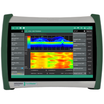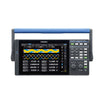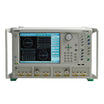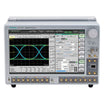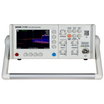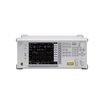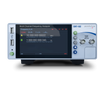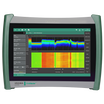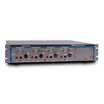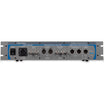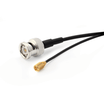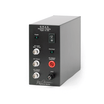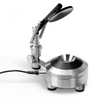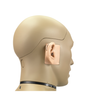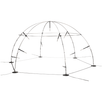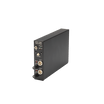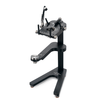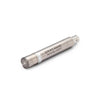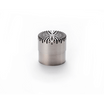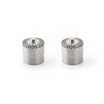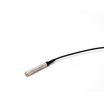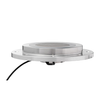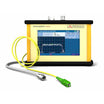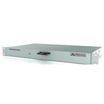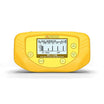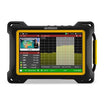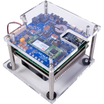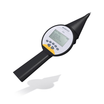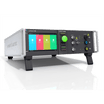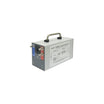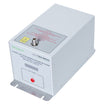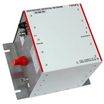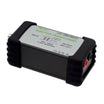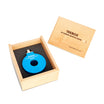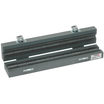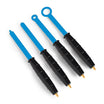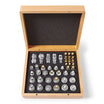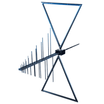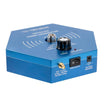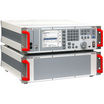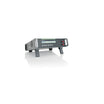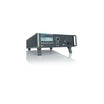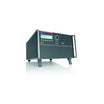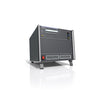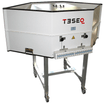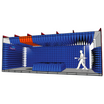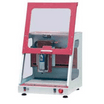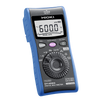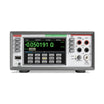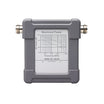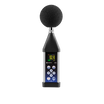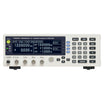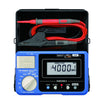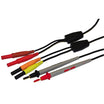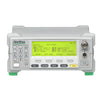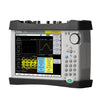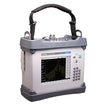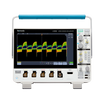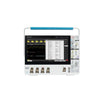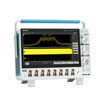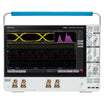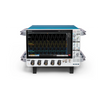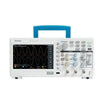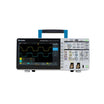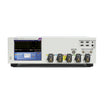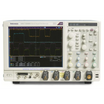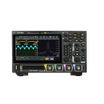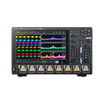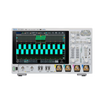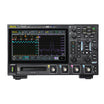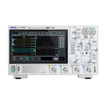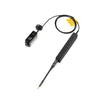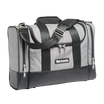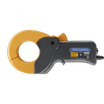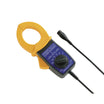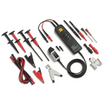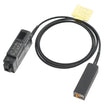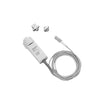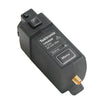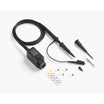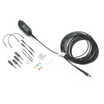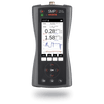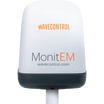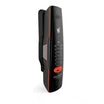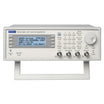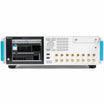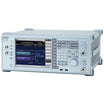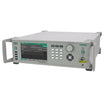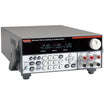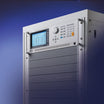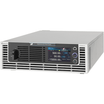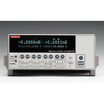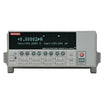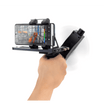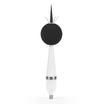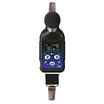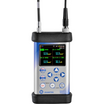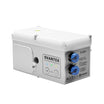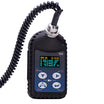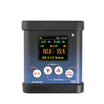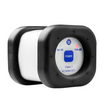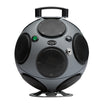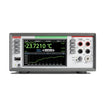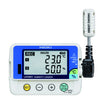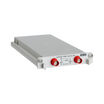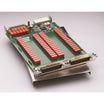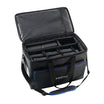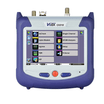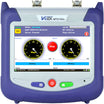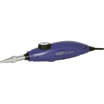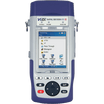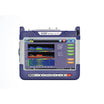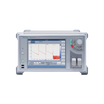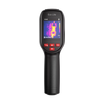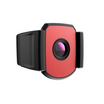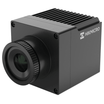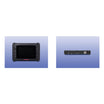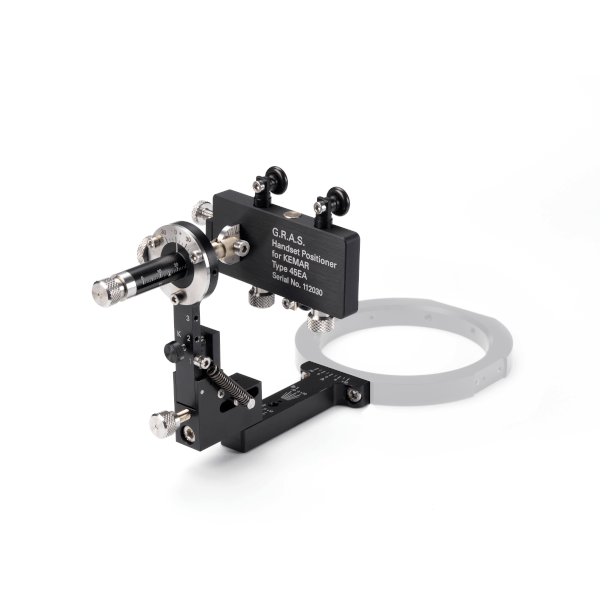
GRAS 45EA Handset Positioning System for KEMAR
Use our chat for personal support or contact us via +45 31 33 18 19 or salg@GOmeasure.dk
GRAS 45EA Handset Positioning System is designed for the head and torso simulator GRAS KEMAR Manikin with Mouth Simulator. With this combination, you can make very realistic in-situ measurements on mobile telephones as well as conventional handsets.
Discover the possibilities
More information
Description
GRAS 45EA Handset Positioning System for KEMAR
Introduction
GRAS 45EA Handset Positioning System is designed for the head and torso simulator GRAS KEMAR Manikin with Mouth Simulator. With this combination, you can make very realistic in-situ measurements on mobile telephones as well as conventional handsets.You can mount the system on the KEMAR without additional tools. The system can be mounted on either side of KEMAR, and you can easily switch it from one side to the other side.
The main features are
- Multi-adjustable in three planes (nine moving segments), thus allowing handsets to be exactly positioned according to requirements and standards
- Simulating arm, wrist. palm, and fingers
- Handset fixture featuring a spring arrangement for easily attaching/detaching practically any mobile/cordless handset
- Adjustable force (pinna leakage pressure)
- Graduated scales at all positioning and force adjustments to ensure that any handset position/force adjustment is entirely defined for repeated measurements.
- Options for pinna size and hardness
- Applicable for both right and left ear
- Easy to retrofit
- Jig for ERP-positioning of handsets
There are two setup modes for the Handset Positioning System.
ERP: This mode uses the Ear Reference Point of the ITU-T P.57 Pinna Simulator, which is determined by the ERP-gauge included with the 45EA, or referred to the EEP (ear entrance point).
<pWell-defined pressure force: This mode uses applied handset pressure force against the pinna; this force is measured and set with the force gauge included with the 45EA.
Note: For telephone handset testing based on ITU-T Recommendations, GRAS 45BC must be configured with the GRAS KB1080 ITU-T pinnae and GRAS KB1081.
Typical applications and use
45EA is the logical companion to GRAS 45BB KEMAR and GRAS 45BC KEMAR for reproducible tests of handsets in accordance with the recommendations in ITU-T P.51 Artificial Mouth, ITU-T P.57 Artificial Ears, P.58 Head and Torso Simulator for Telephonometry (HATS) and ITU-T P.64 Determination of Sensitivity/Frequency Characteristics of Local Telephone Systems.The 45EA is used to simulate how a person holds a handset against the ear with minimum change in the free-field condition and the head-related transfer function (HRTF). This design lets you test all telephone handsets under the same conditions as in real-life situations
- Telephone handset testing
- Telephone handset Research & Development
- Designed for mounting onto GRAS 45BC KEMAR Manikin with Mouth Simulator
It is designed like an arm with a wrist, palm, and fingers.
The arm is mounted on a shoulder and allows for an adjustment of the force with which a handset is pressed against the pinna. Depending on the choice of pinna size, pinna hardness, and research purpose, the sensitivity and leak-tolerance of the receiver can be investigated. There is a pinna-leakage adjustment for testing the influence of a leak.
The arm has two positions made for various handsets and an additional angle adjustment of the palm. The palm can also be adjusted vertically for orientation at the proper EEP or ERP.
The wrist can adjust the palm angles in two perpendicular directions as well as the position on the pinna.
The palm has three fingers and an end-stop for holding and positioning the telephone handset. Two of the fingers can be adjusted to accommodate for the shape and size of the handset as well as positioning the specified ear cap reference point (ECRP) in the ear reference point (ERP). The third finger is spring-loaded, which makes it easy to mount and remove the handset. The length of the fingers can be adjusted with the extension plates and rods included with the system.
45EA can hold handsets up to either ear on the KEMAR Manikin to mimic a left-handed or right-handed person. This allows for diagnostics of handsets where the receiver and/or microphone is positioned asymmetrically, which changes the send and receive characteristics accordingly.
Compatibility
45EA can be mounted on GRAS 45BB and GRAS 45BC KEMAR and can be used to create accurately reproducible test setups for all types of handsets.Quality and warranty
The 45EA Handset Positioning System for KEMAR is manufactured in accordance with the well-known GRAS standard, which provides a 2-year warranty against defective materials and workmanship.Specifications
Documents
GRAS 45EA Handset Positioning System for KEMAR
GRAS 45EA Handset Positioning System for KEMAR datasheetOptions
Video
GRAS 45EA Handset Positioning System for KEMAR
Introduction
GRAS 45EA Handset Positioning System is designed for the head and torso simulator GRAS KEMAR Manikin with Mouth Simulator. With this combination, you can make very realistic in-situ measurements on mobile telephones as well as conventional handsets.You can mount the system on the KEMAR without additional tools. The system can be mounted on either side of KEMAR, and you can easily switch it from one side to the other side.
The main features are
- Multi-adjustable in three planes (nine moving segments), thus allowing handsets to be exactly positioned according to requirements and standards
- Simulating arm, wrist. palm, and fingers
- Handset fixture featuring a spring arrangement for easily attaching/detaching practically any mobile/cordless handset
- Adjustable force (pinna leakage pressure)
- Graduated scales at all positioning and force adjustments to ensure that any handset position/force adjustment is entirely defined for repeated measurements.
- Options for pinna size and hardness
- Applicable for both right and left ear
- Easy to retrofit
- Jig for ERP-positioning of handsets
There are two setup modes for the Handset Positioning System.
ERP: This mode uses the Ear Reference Point of the ITU-T P.57 Pinna Simulator, which is determined by the ERP-gauge included with the 45EA, or referred to the EEP (ear entrance point).
<pWell-defined pressure force: This mode uses applied handset pressure force against the pinna; this force is measured and set with the force gauge included with the 45EA.
Note: For telephone handset testing based on ITU-T Recommendations, GRAS 45BC must be configured with the GRAS KB1080 ITU-T pinnae and GRAS KB1081.
Typical applications and use
45EA is the logical companion to GRAS 45BB KEMAR and GRAS 45BC KEMAR for reproducible tests of handsets in accordance with the recommendations in ITU-T P.51 Artificial Mouth, ITU-T P.57 Artificial Ears, P.58 Head and Torso Simulator for Telephonometry (HATS) and ITU-T P.64 Determination of Sensitivity/Frequency Characteristics of Local Telephone Systems.The 45EA is used to simulate how a person holds a handset against the ear with minimum change in the free-field condition and the head-related transfer function (HRTF). This design lets you test all telephone handsets under the same conditions as in real-life situations
- Telephone handset testing
- Telephone handset Research & Development
- Designed for mounting onto GRAS 45BC KEMAR Manikin with Mouth Simulator
It is designed like an arm with a wrist, palm, and fingers.
The arm is mounted on a shoulder and allows for an adjustment of the force with which a handset is pressed against the pinna. Depending on the choice of pinna size, pinna hardness, and research purpose, the sensitivity and leak-tolerance of the receiver can be investigated. There is a pinna-leakage adjustment for testing the influence of a leak.
The arm has two positions made for various handsets and an additional angle adjustment of the palm. The palm can also be adjusted vertically for orientation at the proper EEP or ERP.
The wrist can adjust the palm angles in two perpendicular directions as well as the position on the pinna.
The palm has three fingers and an end-stop for holding and positioning the telephone handset. Two of the fingers can be adjusted to accommodate for the shape and size of the handset as well as positioning the specified ear cap reference point (ECRP) in the ear reference point (ERP). The third finger is spring-loaded, which makes it easy to mount and remove the handset. The length of the fingers can be adjusted with the extension plates and rods included with the system.
45EA can hold handsets up to either ear on the KEMAR Manikin to mimic a left-handed or right-handed person. This allows for diagnostics of handsets where the receiver and/or microphone is positioned asymmetrically, which changes the send and receive characteristics accordingly.

